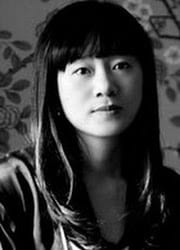MCLC Resource center is pleased to announce publication of Victor Mair’s review of Literary Information in China: A History, edited by Jack W. Chen, Anatoly Detwyler, Xiao Liu, Christopher M. B. Nugent, and Bruce Rusk. A teaser (it’s a long review) appears below. To read the review in its entirety, go to its online home here: https://u.osu.edu/mclc/book-reviews/victor-mair/. My thanks to literary studies book review editor, Nicholas Kaldis, for ushering the review to publication.
Kirk A. Denton, MCLC
Edited by Jack W. Chen, Anatoly Detwyler, Xiao Liu, Christopher M. B. Nugent, and Bruce Rusk
Reviewed by Victor H. Mair
MCLC Resource Center Publication (Copyright September, 2022)

Jack W. Chen, Anatoly Detwyler, Xiao Liu, Christopher M. B. Nugent, and Bruce Rusk, eds. Literary Information in China: A History. New York: Columbia University Press, 2021, xxxii + 672 pp. ISBN: 9780231195522 (Hardcover); 9780231551373 (E-book).
This is a hefty volume, with a total of 670 pages of closely spaced, compact, but still readily legible, type. It explicitly styles itself a “history,” as in the subtitle. Yet, at the head of the “Introduction,” the editors state that it is “For a History of Literary Information in China” (p. xxi, emphasis added), which might be interpreted as signifying something like “materials for, or toward, a history of literary information in China.” In other words, one could think of this volume, which I will henceforth refer to as LIIC, as constituting a collection of fundamental data and ideas that could be used in the making of a history of literary information in China. But that begs the question, because we still don’t know precisely what “literary information” is with reference to the Chinese tradition (history). The aim of this review is to extrapolate from its many chapters just what sort of history of literary information LIIC is pointing toward.
***
In her “Foreword,” Ann Blair has done a worthy job of succinctly tracing the growth of information sciences since the mid-twentieth century, but one still wants to know what literary information is. One thing is certain: LIIC is not a history of literature in China. If that is what the reader is looking for, they have come to the wrong place. Indeed, in LIIC one will find little reference to literary works and authors themselves. Instead, what one will find in abundance are data concerning the epiphenomena of written texts—their constituent symbols (what the authors mostly refer to consistently as “graphs” (wen 文 and zi 字), the nature and form of written texts, the ordering, storage, and retrieval of words, books, articles, and so forth. To be sure, we now have in English and other languages a plentiful assortment of histories of Chinese literature. Thus, there is room for a work like LIIC, which tells us about the “stuff” of written texts in China not the written texts themselves. The notion of “literary information” is quite a novel concept in Chinese studies, though it owes much to Endymion Wilkinson’s monumental Chinese History: A New Manual (1973/1998—2022; six editions), which strives to make available answers and access to all aspects of the written and material culture of Chinese civilization since it began. Rather than a history of literary information per se, however, one may think of LIIC almost as an encyclopedia or handbook for the study of literary information. The editors do make a serious attempt to come to grips with the phenomena of information theory and information studies, not merely as they have emerged in China, but globally. . . [READ THE ENTIRE REVIEW HERE]















